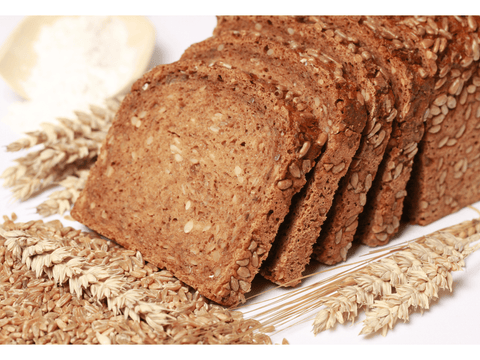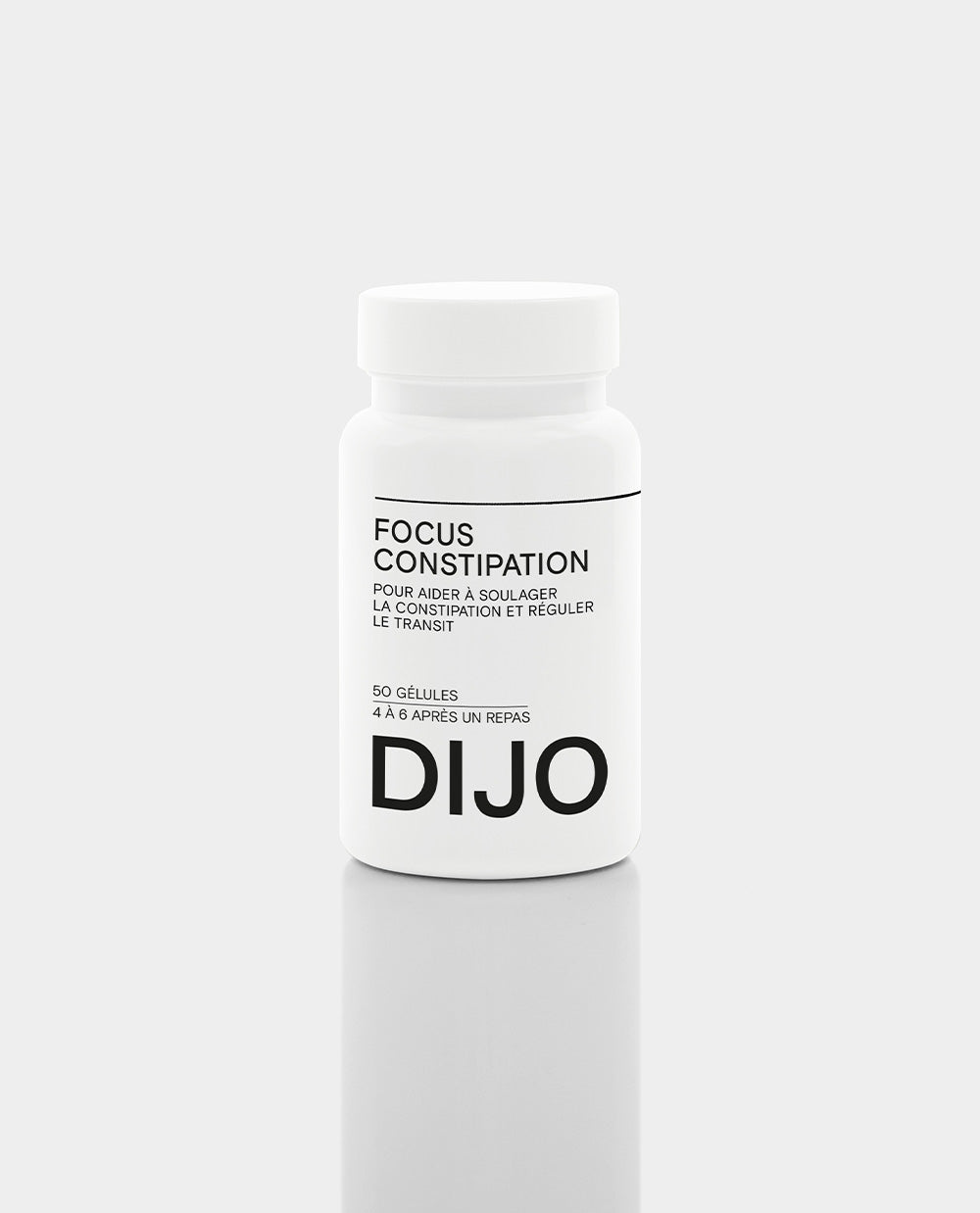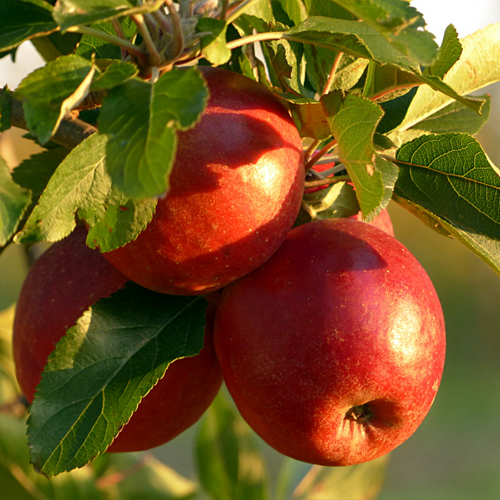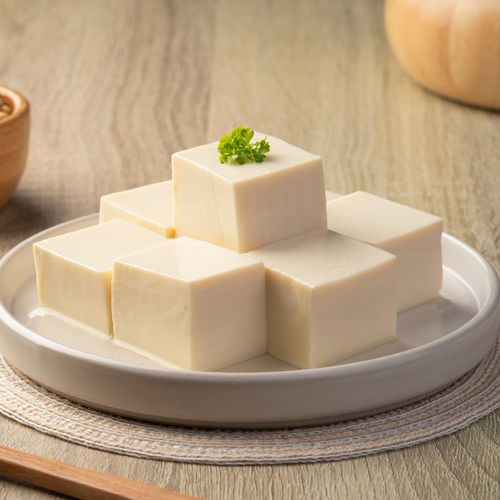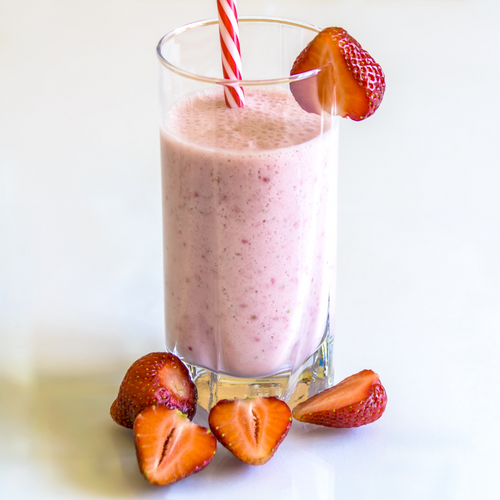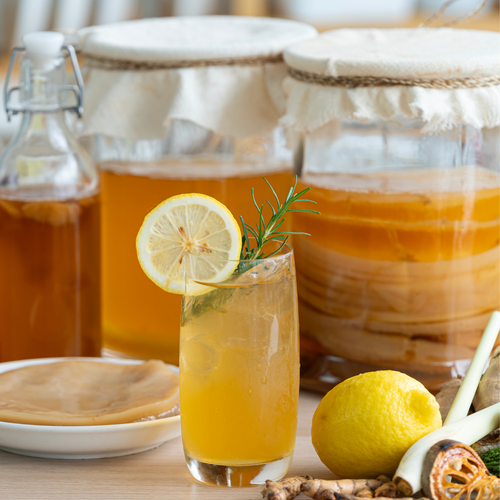What is constipation?
According to the WHO, constipation is defined as passing less than 3 stools per week. This disorder is accompanied by hard, infrequent stools, difficulty evacuating, bloating , gas , which can cause more or less intense abdominal pain. Constipation can be occasional, with a frequency of less than 3 bowel movements per week, or chronic when it has lasted for at least 6 months.
It can be due to various causes, whether medical or not.
Fiber, your anti-constipation intestinal ally
Fibers are mainly polysaccharides (carbohydrates) which have the particularity of not being digested by digestive enzymes, but by the intestinal bacteria which constitute the microbiota. They have a low energy value (2 kcal/g), but they are of capital importance in the regulation of transit .
We distinguish between soluble fibers, absorbing up to 3 times their weight in water, and insoluble fibers, absorbing up to 25 times their weight in water. These increase the mass of stools, thus accelerating transit. Overall, fiber has a laxative effect, but insoluble fiber is particularly recommended in cases of constipation .
In addition to their mechanical effect, and through their prebiotic effect , they participate in maintaining an optimal microbiota, thus promoting fermentation and healthy and functional transit.
There are quite a few sources of fiber: cereal products (especially whole grains), dried and fresh fruits and vegetables, oilseeds, seeds, seaweed, oat bran, etc.
The top 10 foods rich in fiber
At DIJO we are committed to supporting you towards intestinal and digestive well-being; This is why we designed the anti-constipation pack which targets chronic and occasional constipation. By repopulating the microbiota with essential probiotics , we contribute to the balance of the intestinal flora , while the plants contained in Detox Potion reboost your metabolism for guaranteed evacuation . Finally, the plants, fruits and nutrients in Bye Bye Constipation accelerate sluggish transits and maintain optimal digestive comfort.
Please note that these products are to be taken as part of a healthy lifestyle and cannot replace a varied and balanced diet. It is recommended to respect the indicated daily dose and to keep it out of the reach of young children.
However, there are also dietary sources of fiber responsible for regulating transit and nourishing the good bacteria that populate our intestinal flora. Beyond our basic advice, such as practicing a sporting activity, staying well hydrated and avoiding fatty foods which weigh down digestion, we present to you 10 foods rich in fiber which have this anti-constipation power!
1 – Dried prunes
Unsurprisingly, prunes are a laxative! Much more than a simple treat, this dried fruit, a source of fiber, is in fact a precious food for our digestive health. Indeed, with its 5g of fiber per 100g, prune stimulates intestinal peristalsis, softens and weighs down the mass of stools, which facilitates intestinal transit and relieves gastrointestinal disorders, notably constipation.

2 - Almond
Very appreciated for its sweet flavor, the almond contains a notable quantity of dietary fiber. With its 12.5g per 100g of fiber, it is the oilseed fruit that contains the most fiber. In addition to providing good fats and proteins, almonds fight against transit disorders .

3- Dried apricots
Beyond its sensory and taste qualities, the apricot is a concentrate of nutrients, even more so when it is dried. Consuming 3 to 5 dried apricots per day when feeling hungry will not only provide your body with minerals such as potassium and vitamins, but also a notable quantity of fiber (8.3g per 100g). These dietary fibers provide a feeling of satiety while fighting against constipation and contributing to the proper functioning of the cardiovascular system.

4 - Cocoa
Much more than a simple treat, chocolate, considered a pleasure food par excellence, contains nutrients with many surprising benefits!
Rich in antioxidants, minerals and vitamins, cocoa strengthens your body while helping you face everyday life with positivity. This superfood also offers an often overlooked health benefit, its natural fiber content. Unsweetened cocoa powder contains no less than 29.5g of dietary fiber per 100g!
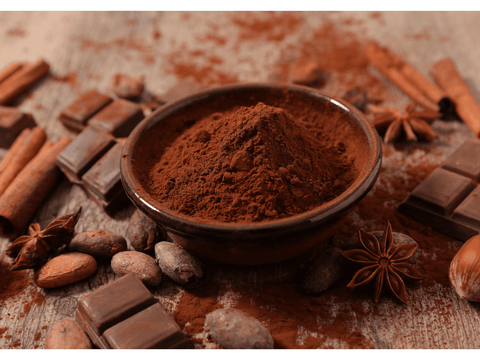
5 - Apple
The apple, described as a “superfruit”, is a true source of nutritional benefits. Its richness in pectin, a soluble fiber, gives it a prebiotic power which nourishes the good bacteria of our intestinal microbiota. The apple is also a good source of vitamin C, minerals, trace elements and antioxidants essential for our health. Integrating apples into your diet ensures effective support for the immune system and promotes optimal regulation of transit.
It is interesting to note that eaten raw and with its skin, the apple and its 4 grams of fiber are effective against constipation while eaten cooked and without its skin, the apple is recommended in cases of diarrhea .
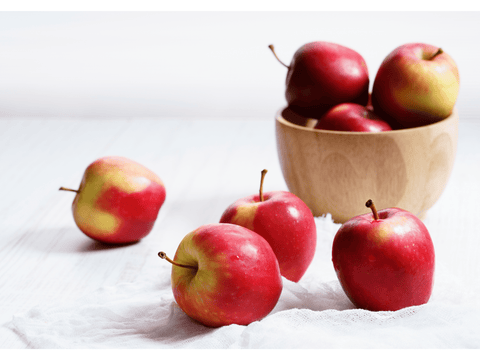
6 – Red beans
An excellent source of protein, red beans are one of the most popular dried vegetables for their mild flavor and diuretic properties. In addition to its richness in iron and other minerals, it is also a real source of fiber with its 15 grams of fiber per cup, which gives it its anti-constipation properties.

7 – Chicory
Chicory is one of the richest sources of inulin, a prebiotic that promotes the growth of good bacteria in the intestine. Chicory inulin contributes to normal intestinal function by increasing the frequency of stools and therefore reduces the risk of constipation. Chicory is also rich in antioxidants, making it beneficial for general health.
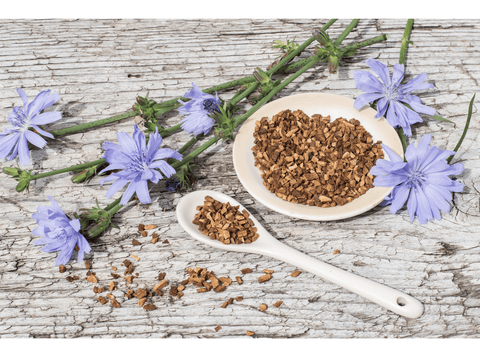
8 – Hazelnuts
Appreciated for its inimitable taste, the hazelnut is an oilseed fruit used in many gourmet recipes. Beyond their sensory qualities, hazelnuts are remineralizing and a source of proteins, good lipids and especially fiber. In fact, they contain 11.6% of these food substances valuable for health. Consuming a daily handful of hazelnuts is entirely compatible with a healthy and balanced diet. So, don’t deprive yourself of the benefits of this little nut!
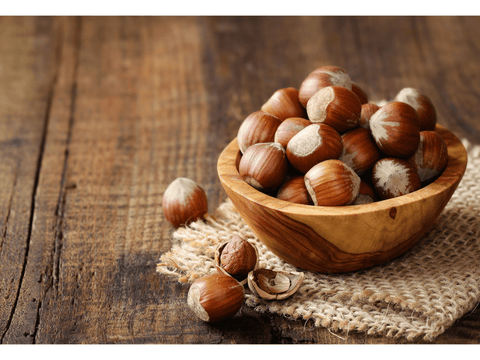
9 – Flaxseed
Flaxseeds are a veritable mine of nutrients with numerous benefits: anti-inflammatory, anti-oxidant, laxative, cholesterol-lowering, etc. Oil extracted from flaxseed provides the highest amount of alpha-linolenic acid, an essential omega-3 fatty acid. 2 spoons per day of flaxseed oil and you cover 100% of your daily omega-3 needs!
These small seeds are also a source of soluble and insoluble fiber, with a rate of 27.3%, which facilitate intestinal transit, reduce the risk of constipation and provide a satiating effect.
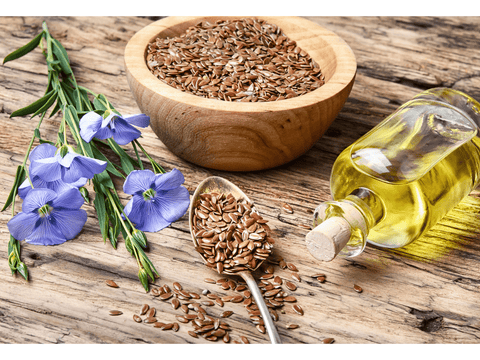
10 - Wholemeal bread
Generally singled out during a diet, bread is nevertheless one of the foods at the base of our diet. However, unlike white bread made from white flour, made from cereals from which the germ and husk have been removed, wholemeal bread is made from whole grains, which retain all their nutrients. It is therefore naturally richer in fiber (7g per 100g), but also in minerals and vitamins. It therefore helps limit snacking between meals, improve intestinal transit and control blood sugar levels.
